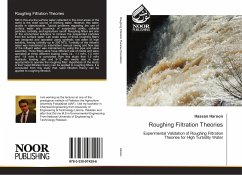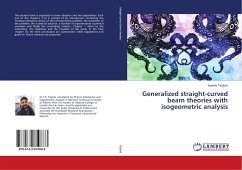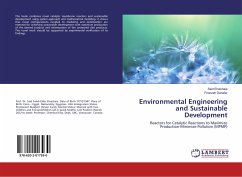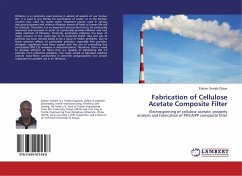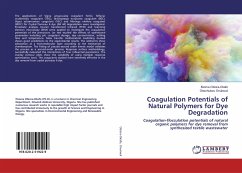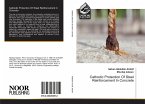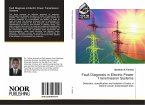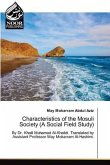Still in this era the surface water collected in the most areas of the world is the chief source of drinking water. However this water quality is objectionable. Typical problems regarding the use of surface water are presence of suspended solids, colloidal particles, turbidity, and agriculture runoff. Roughing filters are one of the economical solutions to remove the suspended particles from the surface water. Lab scale setup of three roughing filters was designed and operated using synthetic raw water of high turbidity, having turbidity up to 200 NTU. Turbidity of the influent water was maintained by intermittent manual mixing and flow rate of the influent water was maintained by using the pipe and valve assembly. Three filters were have different size of media and were operated at three different loading rates i-e., 1.1 m/hr, 1.5 m/hr and 1.9 m/hr. It is concluded from this study that 1.5 m/hr hydraulic loading rate and 8-12 mm media size is most appropriate to operate the roughing filter. Hypothesis of the study is that "rapid filtration theory can be applied to roughing filters. It is concluded from this study that rapid filtration theory can be applied to roughing filtration.
Bitte wählen Sie Ihr Anliegen aus.
Rechnungen
Retourenschein anfordern
Bestellstatus
Storno

